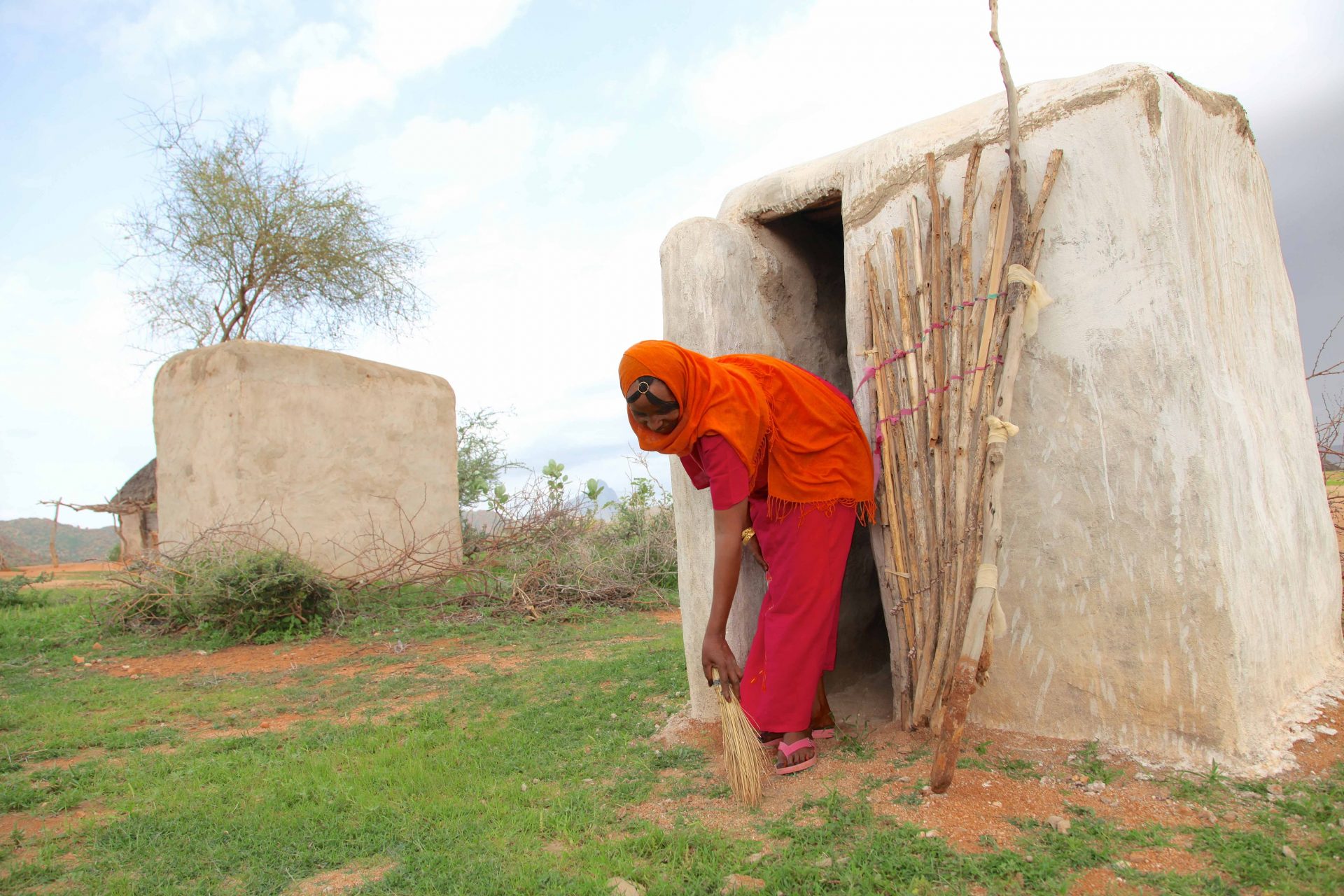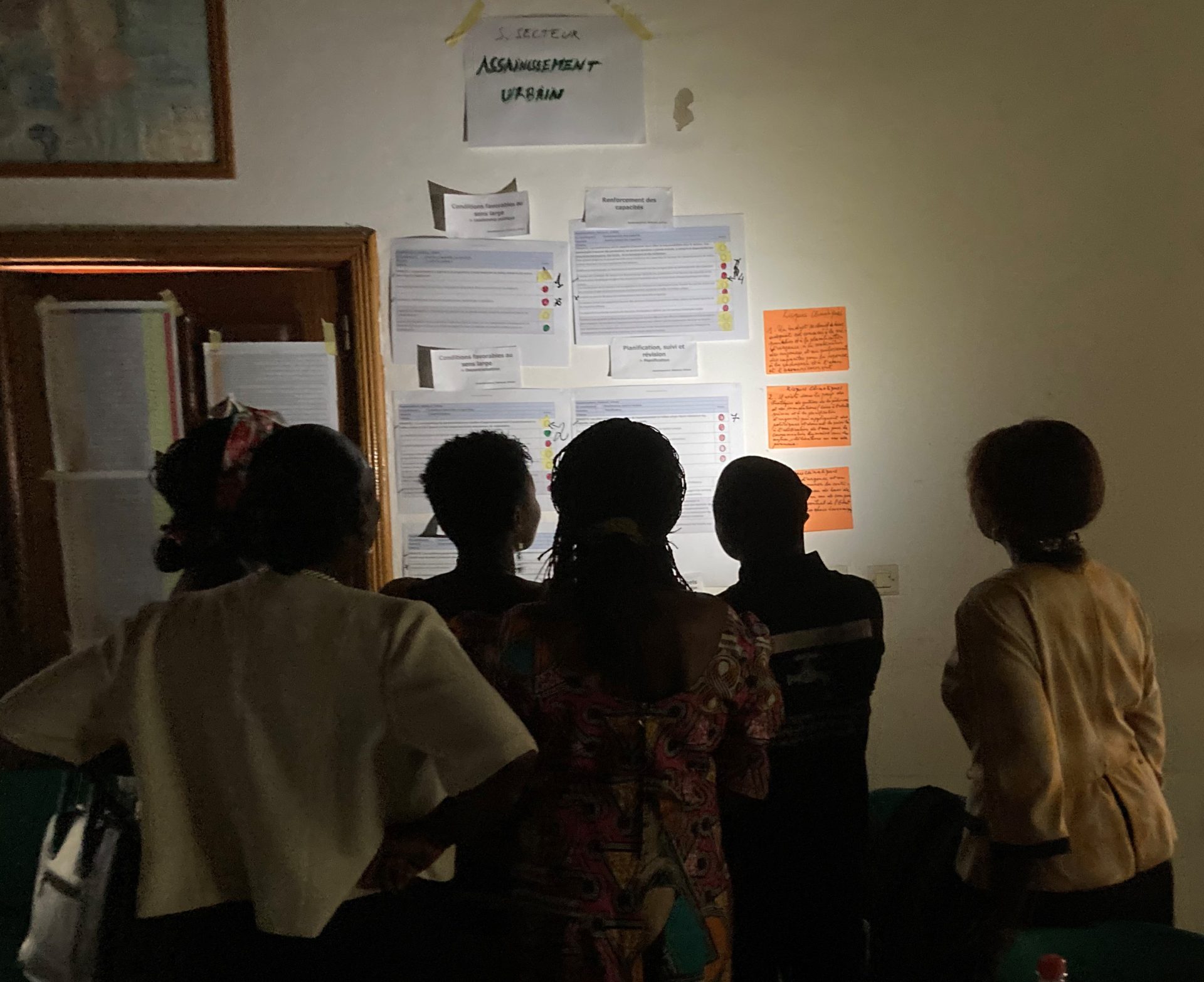Drafting a national action plan to tackle WASH sector’s climate risks in Central African Republic
The Central African Republic (CAR) is a glaring example of the catastrophic human consequences of conflicts and natural disasters that frequently occur in the same location. Despite being endowed with abundant rainfall in most of its territory, a high degree of biological diversity, rich agricultural lands and enormous mineral deposits of gold and diamonds, the country is one of the poorest in the world.
In 2009, the CAR ranked 188 out of 189 countries in UNDP’s Human Development Index. The country suffers from a long history of conflicts, the latest of which broke out in 2013. In many regions, people live in fear of attacks and abuses by armed groups, which limits their access to food.
As a result, CAR has one of the highest proportions of critically food-insecure people in the world. The number of internally displaced persons has reached 658,000 in 2022 and there is very little hope of return for the 738,000 refugees in neighbouring countries.
The level of poverty and insecurity limits people’s capacity to manage climate risks, further increasing their vulnerability to rapid-onset climate hazards such as droughts, floods or bush fires, and slow-onset such as changes in the characteristics of annual and seasonal precipitation and water scarcity.
The Central African Republic is ranked 180 out of 181 countries in the 2020 ND-GAIN Index (insert link/source), which measures a country’s vulnerability to climate change and their readiness to improve resilience.
The Workshop and SIWI’s intervention
These interconnected threats undermine progress toward the achievement of SDG 6 to ensure availability and sustainable management of water and sanitation for all. In response to the climate threats to infrastructure, services, and communities, SIWI was entrusted to conduct a bottlenecks analysis of the WASH sector in the country that would broaden the standard criteria to consider specifically the risks posed to the sector by changing patterns of climate.
The Risk informed WASH Bottleneck Analysis Tool (RI-WASH BAT) process started with an analysis of climate-related risks and their ranking according to the level of their impact on access and provision of water and sanitation services.
In many respects, climate change intensifies pre-existing challenges for the Central-African population. Taking these conclusions forward in a governance-focused analysis, the RI-WASH BAT workshop led to an Action Plan of 24 priority actions that reflect the entangled nature of WASH issues.
A Climate Change Task Force of 21 national experts on both climate and WASH was constituted for this purpose. As a result of their work, a climate risk report was submitted to the participants to a WASH BAT workshop facilitated by SIWI that took place in the capital, Bangui, in April 2022.
The climate report identifies six main hazards that threaten the sector: droughts, floods, bush fires, economic weaknesses, disruptions in the regime of rainfall, and water scarcity.
The Central African report highlights that WASH services are already disrupted by extreme climate events and shifting conditions. Unless addressed, these hazards are likely to affect the sector even more in the future.
Importantly, the climate-risk analysis proposed to the WASH BAT deliberations insists that exposure and vulnerability to climate variability is socially constructed through multiple underlying and interconnected risk drivers that include environmental degradation, poverty and inequality, and badly planned water management and urban development.
In many respects, climate change intensifies pre-existing challenges for the Central-African population. Taking these conclusions forward in a governance-focused analysis, the RI-WASH BAT workshop led to an Action Plan of 24 priority actions that reflect the entangled nature of WASH issues.
The political instability and associated weak governance were an obvious focus for most proposed activities to counter bottlenecks to sustainable and equitable WASH services. The Action Plan outlines strong measures to clarify roles and responsibilities, strengthen capacities, translate policies into legally enforceable legislation, increase coordination and make service delivery modalities more efficient and relevant.
The limited capacity of the state and humanitarian actors to intervene outside of the capital was in focus, especially for rural sanitation. The results of the climate lens’ approach go beyond technical considerations for climate proofing infrastructures against floods, and heavy rainfall, and increased water demand during heatwaves.
It stimulated explicit attention to the specific needs of those disproportionately affected by recurrent floods, wildfires and droughts or prolonged dry seasons. The proposed measures considered the projected decreased reliability of water sources that multiplies the challenges already faced by the rural poor in day-to-day life, particularly women and the disabled.
The Action Plan also recognised the vulnerability of persons living in urban settlements exposed to riverine and flash floods, and those living in the country’s mountain areas affected by landslides and mudslides.
Specific options were recommended to plan for emergency WASH needs of forcibly displaced populations and increase institutional capacities to manage these situations.
Options for the affordability of services and a better use of available financial resources were included. The Action Plan mentions the possibility to access climate finance for WASH.
In an encouraging sign, the signatories of the declaration that concluded the workshop made a commitment to monitor and control the results of the implementation of the Action Plan.
WASH BAT
This online tool, “WASH BAT” or WASH Bottleneck Analysis Tool, was developed to support the drinking-water, sanitation and hygiene (WASH) sector to reach the Sustainable Development Goals. The tool enables the development of costed and prioritized plans to remove the bottlenecks that constrains progress in the WASH sector.
Learn more about this tool









